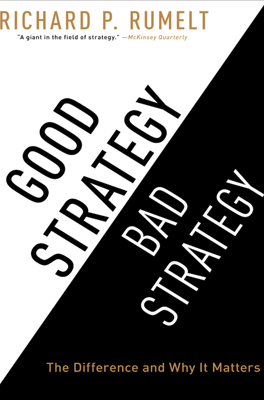Good Strategy Is Unexpected
The Unexpected Edge of Good Strategy
Good strategy is often unexpected because many organizations lack coherent strategies, expecting merely to progress by working harder. This provides a unique advantage to those with well-coordinated strategies aimed at clear objectives.
Example: Apple's Tactical Simplification
Under Steve Jobs in 1997, Apple was near bankruptcy and cluttered with diverse, unprofitable products. Jobs introduced a simplified strategy that significantly downscaled the company to focus on core products and cut unnecessary ones, thereby reducing complexities and costs. This more coherent approach focused on essential products sold through fewer outlets massively reduced inventory costs and manufacturing complexities.
- Jobs restructured the entire product line, reducing it dramatically.
- Apple cut down from fifteen desktop models to one, reduced its retailers from six to one, and outsourced production, which streamlined operations and cut costs.
- The strategy was basic yet unexpected because it focused solely on reviving the core of Apple rather than diversifying or expanding aggressively.
The Power of Focus in Execution
Jobs' strategy shows the power of a focused approach that tackles the fundamental issues directly rather than spreading efforts over many uncoordinated initiatives. His return to basic business survival tactics was unanticipated but highly effective in steering Apple back from the brink of failure.
Desert Storm: A Military Example of Focused Strategy
During the 1991 Gulf War, U.S. commanders employed a highly effective, yet surprising strategy against Iraqi forces. General Norman Schwarzkopf orchestrated a "left hook" strategy that involved a feigned direct attack combined with a massive flanking maneuver. This strategy led to a swift and decisive victory with minimal coalition casualties.
- The plan involved preoccupying Iraqi forces with minor direct engagements while positioning a larger force to attack from the side unexpectedly.
- It showcased how a clear, focused military strategy could achieve objectives efficiently compared to widespread, uncoordinated approaches typical of many military operations.
Surprise and Focus
Both examples underline how unexpected a coherent and focused strategy can be in environments where complexity and a lack of coordination prevail. Sound strategy involves not only selecting what to do but also deciding what not to engage in, ensuring resources and efforts are directed toward optimal impact points. This can often come as a surprise both to competitors and industry observers, who may expect a more conventional approach.
